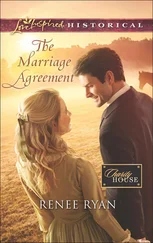Marah Ryan - The Bondwoman
Здесь есть возможность читать онлайн «Marah Ryan - The Bondwoman» — ознакомительный отрывок электронной книги совершенно бесплатно, а после прочтения отрывка купить полную версию. В некоторых случаях можно слушать аудио, скачать через торрент в формате fb2 и присутствует краткое содержание. Жанр: foreign_prose, на английском языке. Описание произведения, (предисловие) а так же отзывы посетителей доступны на портале библиотеки ЛибКат.
- Название:The Bondwoman
- Автор:
- Жанр:
- Год:неизвестен
- ISBN:нет данных
- Рейтинг книги:3 / 5. Голосов: 1
-
Избранное:Добавить в избранное
- Отзывы:
-
Ваша оценка:
- 60
- 1
- 2
- 3
- 4
- 5
The Bondwoman: краткое содержание, описание и аннотация
Предлагаем к чтению аннотацию, описание, краткое содержание или предисловие (зависит от того, что написал сам автор книги «The Bondwoman»). Если вы не нашли необходимую информацию о книге — напишите в комментариях, мы постараемся отыскать её.
The Bondwoman — читать онлайн ознакомительный отрывок
Ниже представлен текст книги, разбитый по страницам. Система сохранения места последней прочитанной страницы, позволяет с удобством читать онлайн бесплатно книгу «The Bondwoman», без необходимости каждый раз заново искать на чём Вы остановились. Поставьте закладку, и сможете в любой момент перейти на страницу, на которой закончили чтение.
Интервал:
Закладка:
“Let us persuade her to visit America,” suggested Mrs. McVeigh. “I can, at least, prescribe a change promising more of joyous festivity–life on a Carolina plantation.”
“What delight for her! she loves travel and new scenes. Indeed, Alain, my son, has purchased a property in your land, and some day she may go over. But for the brief remnant of my life I shall be selfish and want her always on my side of the ocean. What, child? you pale at the mention of death–tah! it is not so bad. The old die by installments, and the last one is not the worst.”
“May it be many years in the future, Maman,” murmured the young Marquise, whose voice betrayed a certain effort as she continued: “I thank you for the suggestion, Madame McVeigh; the property Maman refers to is in New Orleans, and I surely hope to see your country some day; my sympathies are there.”
“We have many French people in the South; our own part of the land was settled originally by the cavaliers of France. You would not feel like a stranger there.”
“Not in your gracious neighborhood, Madame;”–her face had regained its color, and her eyes their brilliant expression.
“And there you would see living pictures like this,” suggested the Countess Helene; “what material for an artist!”
“Oh, no; in the rice fields of South Carolina they do not look like that. We have none of those Oriental effects in dress, you know. Our colored women look very sober in comparison; still they have their attractions, and might be an interesting study for you if you have never known colored folks.”
“Oh, but I have,” remarked the Marquise, smiling; “an entire year of my life was passed in a school with two from Brazil, and one from your country had run away the same season.”
“Judithe; child!”
The dowager fairly gasped the words, and the Marquise moved quickly to her side and sank on the cushion at her feet, looking up with an assuring smile, as she caressed the aged hand.
“Yes, it is quite true,” she continued; “but see, I am alive to tell the tale, and really they say the American was a most harmless little thing; the poor, imprisoned soul.”
“How strange!” exclaimed Mrs. McVeigh; “do you mean as fellow pupils?–colored girls! It seems awful.”
“Really, I never thought of it so; you see, so many planters’ daughters come from the West Indies to Paris schools. Many in feature and color suggest the dark continent, but are accepted, nevertheless. However, the girl I mention was not dark. Her mother had seven white ancestors to one of black. Yet she confided her story to a friend of mine, and she was an American slave.”
The dowager was plainly distressed at the direction of the conversation, for the shock to Mrs. McVeigh was so very apparent, and as her hostess remembered that slavery was threatening to become an institution of uncompromising discord across the water, all reference to it was likely to be unwelcome. She pressed the fingers of the Marquise warningly, and the Marquise smiled up at her, but evidently did not understand.
“Can such a thing be possible?” asked Mrs. McVeigh, incredulously; “in that case I shall think twice before I send my daughter here to school, as I had half intended–and you remained in such an establishment?”
“I had no choice; my guardians decided those questions.”
“And the faculty–they allowed it?”
“They did not know it. She was represented as being the daughter of an American planter; which was true. I have reason to believe that my friend was her only confidant.”
“And for what purpose was she educated in such an establishment?”
“That she might gain accomplishments enhancing her value as companion to the man who was to own her.”
“Madame!”
“Marquise!”
The two exclamations betrayed how intent her listeners were, and how full of horror the suggestion. There was even incredulity in the tones, an initiative protest against such possibilities. But the Marquise looked from one to the other with unruffled earnestness.
“So it was told to me,” she continued; “these accomplishments meant extra thousands to the man who sold her, and the man was her father’s brother.”
“No, no, no!” and Mrs. McVeigh shook her head decidedly to emphasize her conviction. “I cannot believe that at the present day in our country such an arrangement could exist. No one, knowing our men, could credit such a story. In the past century such abuses might have existed, but surely not now–in all my life I have heard of nothing like that.”
“Probably the girl was romancing,” agreed the Marquise, with a shrug, “for you would no doubt be aware if such a state of affairs had existence.”
“Certainly.”
“Then your men are not so clever as ours,” laughed the Countess; “for they manage many little affairs their own women never suspect.”
Mrs. McVeigh looked displeased. To her it was not a matter of cleverness, but of principle and morality; and in her mind there was absolutely no comparison possible without jarring decidedly on the prejudices of her Gallic friends, so she let the remark pass without comment.
“Yes,” said the Marquise, rising, “when I heard the story of the girl Rhoda I fancied it one the white mistresses of America seldom heard.”
“Rhoda?”
“Yes, that was the name the girl was known by in the school–Rhoda Larue–the Larue was a fiction; slaves, I am told, having no legal right to names.”
“Heavens! What horrors you fancy! Pray give us some music child, and drive away the gloomy pictures you have suggested.”
“An easy penance;” and the Marquise moved smilingly towards the alcove.
“What!” cried the Countess Helene, in protest, “and the story unfinished! Why, it might develop into a romance. I dote on romances in real life or fiction, but I like them all spelled out for me to the very end.”
“Instead of a romance, I should fancy the girl’s life very prosaic wherever it is lived,” returned the Marquise. “But before her year at the convent had quite expired she made her escape–took no one into her confidence; and when her guardian, or his agent, came to claim her, there were storms, apologies, but no ward.”
“And you do not call that a romance?” said the Countess. “I do; it offers all sorts of possibilities.”
“Yes, the possibility of this;” and Mrs. McVeigh pointed to the picture before them. The Marquise halted, looked curiously at the speaker, then regarded the oriental face on the canvas thoughtfully, and passed her hand over her brow with a certain abstraction.
“I never thought of that,” she said slowly. “You poor creature!” and she took a step nearer the picture. “I–never–thought of that! Maman, Madame McVeigh has just taught me something–to be careful, careful how we judge the unfortunate. They say this Kora is a light woman in morals; but suppose–suppose somewhere the life that girl told of in the convent really does exist, and suppose this pretty Kora had been one of the victims chosen! Should we dare then to judge her by our standards, Maman? I think not.”
Without awaiting an opinion she walked slowly into the alcove, and left the three ladies gazing at each other with a trifle of constraint mingled with their surprise.
“Another sacred cause to fight for,” sighed the dowager, with a quaint grimace. “Last week it was the Jews, who seem to me quite able to take care of themselves! Next week it may be Hindoo widows; but just now it is Kora!”
“She should have been born a boy in the age when it was thought a virtue to don armor and do battle for the weak or incapable; that would have suited Judithe.”
“Not if it was the fashion,” laughed the Countess Helene; “she would insist on being original.”
Читать дальшеИнтервал:
Закладка:
Похожие книги на «The Bondwoman»
Представляем Вашему вниманию похожие книги на «The Bondwoman» списком для выбора. Мы отобрали схожую по названию и смыслу литературу в надежде предоставить читателям больше вариантов отыскать новые, интересные, ещё непрочитанные произведения.
Обсуждение, отзывы о книге «The Bondwoman» и просто собственные мнения читателей. Оставьте ваши комментарии, напишите, что Вы думаете о произведении, его смысле или главных героях. Укажите что конкретно понравилось, а что нет, и почему Вы так считаете.












